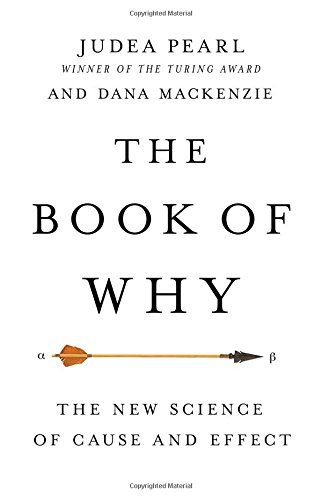By Stephen Hawking (2018)
Pages: 218, Final verdict: Should-read
Stephen Hawking addresses some of the big questions of our universe: how did it all begin? or, are we alone in the universe? Brief Answers to the Big Questions is the last book of the most famous physicist of our time. It is a collection of writings which he was working on before passing away in early 2018. Fortunately for all of us, his friends and family made sure we all got to see this book.
The Laws of the Universe
Each of the chapter in Brief Answers to the Big Questions answers one of the said questions. But before, Stephen Hawking introduces the book by telling us why we must ask the big questions.
In a simple and catchy way, Dr. Hawking uses the first chapter to tell the story of his life, from how he became a physics student, to his fight with amyotrophic lateral sclerosis (ALS) since his twenties. Despite being confined early on to a wheelchair and only being able to move a few muscles in his face due to this motor neurone disease, Dr. Hawking never gave up.
Surely with great pain, but above all with great will to live, Dr. Hawking lived far beyond the 5 years life expectancy he was first told to have, becoming the most successful Cosmologist in the world and contributing to a huge leap in our understanding of the Universe. Dr. Hawking's passion for scientific discovery is then the answer to why we must ask the big questions. We must "fight for every man and woman to have the opportunity to live healthy, secure lives, full of opportunity and love".
- Is there a God?
- How did it all begin?
- Is there other intelligent life in the universe?
- Can we predict the future?
- What is inside a black hole?
- Is time travel possible?
- Will we survive on Earth?
- Should we colonise space?
- Will artificial intelligence outsmart us?
- How do we shape the future?
These are the big questions addressed by Dr. Hawking. Some of them are more scientific (what is inside a black hole?), while you might argue that some others are more spiritual (is there a God?). However, whatever the question, Dr. Hawking addresses it in a very logic and scientific way. He knows how the Universe works and he is not afraid to share that knowledge.
At times, the answers dive deep into physics, but even then the writing is so eloquent that anyone can follow Dr. Hawking's explanations.
"I regard it as a triumph that we, who are ourselves mere stardust, have come to such a detailed understanding of the universe in which we live." - Stephen Hawking
Space exploration
You can't read Brief Answers to the Big Questions without getting excited about exploring space. For most part of the book you learn about the Big Bang, Black Holes and even alternate universes. And towards its end, Dr. Hawking discusses our options for the survival of humankind.
Dr. Hawking sees the Earth as a fragile environment which could be destroyed by many threats. For once, there is Global Warming, caused by our eagerness to deplete Earth's resources. Then, other dangers brought by advances in science: nuclear armageddon or transcendent human beings enhanced by genetic editing and artificial intelligence. And even if we manage to survive our own man-made dangers, we're always at risk of being hit by a meteorite such as the one which killed the Dinosaurs.
For all these reasons, it is quite clear for Dr. Hawking that we must venture into space and find new planets to inhabit. It is fascinating to read about the different possibilities for Moon bases and Mars colonies that lie in the future. We even get to learn about Dr. Hawking's collaboration with project Breakthrough Starshot which aims to build a spacecraft to travel at a fifth of the speed of light and visit Alpha Centauri within our lifetimes. How cool is that?!
As robot spaceships or actual man-crewed vessels, will we get to leave an enduring mark on the Universe beyond our Solar System? Or are we doomed to stay on Earth until we kill each other off?
"Our future is a race between the growing power of our technology and the wisdom with which we use it. Let's make sure that wisdom wins." - Stephen Hawking
Bottom line
Stephen Hawking must have been a great man. And he was surely a great communicator. Brief Answers to the Big Questions is an excellent example of how to tackle complex and important topics in a way which is interesting for both the general public and science buffs. In this book there is a bit of something for everyone.
On a more negative point, Brief Answers to the Big Questions is not the most innovative book. It touches points discussed by many authors before. Nonetheless, it is extremely interesting, uplifting and easy to read.
I definitely recommend reading it.
Further learning:
- Visit Stephen Hawking's personal page.
- Read A Brief History of Time, one of the best popular science books of the twentieth century (a bit more dense on physics theory).
- Read Dr. Hawking's memoir My Brief History
- Watch the Hollywood movie about Dr. Hawking's life, The Theory of Everything.



